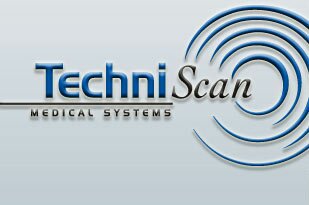How to Manage Digestive Issues with a Balanced Diet

Digestive issues like bloating, acid reflux, constipation, and irritable bowel syndrome (IBS) are common, but diet plays a crucial role in managing them. While occasional discomfort is normal, persistent digestive problems can interfere with daily life. The good news is that making mindful food choices can help maintain a healthy gut and reduce symptoms.
Understanding the Link Between Diet and Digestion
The digestive system relies on a balance of nutrients, fiber, and hydration to function properly. Poor dietary habits—such as excessive processed foods, low fiber intake, or irregular eating patterns—can lead to discomfort and long-term gut health problems. By focusing on whole foods and establishing healthy eating habits, digestion can improve naturally.
Essential Nutrients for Digestive Health
1. Fiber for Smooth Digestion
Dietary fiber helps regulate bowel movements and supports gut bacteria. It comes in two forms:
- Soluble fiber (found in oats, apples, and beans) absorbs water and softens stools, making it helpful for constipation.
- Insoluble fiber (found in whole grains, nuts, and vegetables) adds bulk to stools and promotes regularity.
A balanced intake of both types of fiber keeps digestion running smoothly.
2. Hydration for Digestive Function
Water is essential for breaking down food and preventing constipation. Without enough fluids, stools can become hard and difficult to pass. Herbal teas, broths, and water-rich foods like cucumbers and watermelon also contribute to hydration. Staying consistently hydrated helps maintain the smooth movement of food through the digestive tract, reducing the risk of bloating and discomfort.
3. Probiotics for Gut Balance
Probiotics are beneficial bacteria that support gut health and aid digestion. A well-balanced microbiome is essential for digestion, as emphasized by Jasvant Modi. More details on this can be found on his Healthgrades page:https://www.healthgrades.com/physician/dr-jasvant-modi-x48f6. Natural sources of probiotics include yogurt, kefir, kimchi, and miso.
Regularly consuming probiotic-rich foods can also strengthen the immune system and enhance nutrient absorption.
4. Lean Proteins for Easy Digestion
Fatty and fried foods can slow digestion and trigger acid reflux. Opt for lean proteins like chicken, fish, tofu, and legumes, which are easier to digest and provide essential amino acids. These protein sources also support muscle health and overall metabolism without putting extra strain on the digestive system.
Foods to Avoid for Better Digestion
Certain foods can trigger or worsen digestive issues:
- Highly processed foods often contain preservatives and additives that disrupt gut bacteria.
- Dairy products can be difficult to digest for those with lactose intolerance.
- Carbonated beverages may cause bloating and gas buildup.
- Spicy and acidic foods can irritate the stomach lining and worsen acid reflux.
Limiting these foods can reduce digestive discomfort and promote gut health.
Healthy Eating Habits for Better Digestion
Beyond food choices, how you eat also impacts digestion:
- Eat smaller, more frequent meals to prevent bloating and indigestion.
- Chew food thoroughly to aid digestion and reduce strain on the stomach.
- Avoid eating late at night to prevent acid reflux and discomfort.
- Manage stress, as anxiety can affect gut function and trigger symptoms.
Supporting digestive health begins with a well-balanced diet that includes fiber, proper hydration, and gut-friendly nutrients. Making thoughtful food choices and maintaining healthy eating habits can help reduce digestive discomfort and promote overall wellness. If issues persist, seeking advice from a healthcare professional can provide personalized recommendations.






